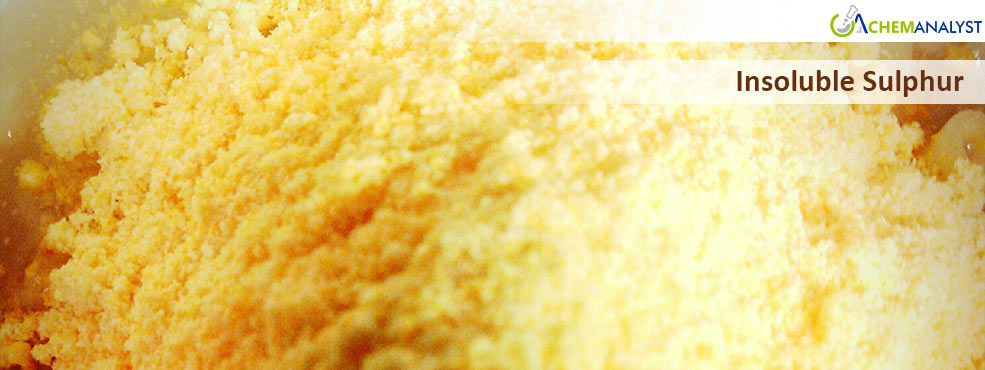Welcome To ChemAnalyst

In April 2025 the prices of Insoluble sulphur experienced steady pricing whereas the crude oil price declined. Insoluble sulphur is a crucial vulcanizing agent used in the tyre and rubber industries as it enhances the strength and durability of rubber products.
Recently, President Trump announced a 90-day suspension of most planned tariffs on imports from countries other than China which aim to alleviate global market concerns. However, tariffs on Chinese imports were increased to 125% with a total effective rate of 145% when including existing levies. This move led to a temporary boost in global stock markets but U.S. markets experienced volatility due to ongoing trade uncertainties. Due to this tyre manufacturers in China face reduced export demand which leads to slower procurement of insoluble sulphur, though domestic automobile sales continue to provide some support to the Chinese market.
Meanwhile, India and Malaysia are benefiting from increased tyre production as manufacturers look to diversify their supply chains and reduce dependence on China. India has established a rubber processing industry and Malaysia’s growing role as a manufacturing hub has made both countries attractive alternatives for tyre production which drives consistent demand for insoluble sulphur in the region. Additionally, government incentives and infrastructure investments in these nations are further supporting the expansion of their tyre manufacturing capabilities.
At the same time in the US, higher tariffs on imported tyres are leading to increased domestic production and prompting local manufacturers to scale up operations to meet demand. However, the added pressure of tariffs on imported auto parts is contributing to increased production expenses which potentially lead to higher consumer prices for tyres in the coming months. Whereas the insoluble sulphur market remains stable as domestic tyre manufacturers continue to rely on this essential vulcanizing agent.
Despite this crude oil which act as a raw material of Insoluble sulphur shows a decline in its prices whereas Insoluble sulphur remains stagnant. Typically, lower crude oil prices reduce production costs for rubber and tyre manufacturers, but insoluble sulphur prices have not followed this trend as demand remains consistent across the domestic market.
Looking ahead, ChemAnalyst expects that as global tyre manufacturers adapt to U.S. tariffs and rising production costs, demand for insoluble sulphur is likely to hold firm. However, the focus on high-performance and eco-friendly tyre requirements especially in the electric vehicle segment may change the market scenario and could introduce new market dynamics that may alter this stability in the long run.
We use cookies to deliver the best possible experience on our website. To learn more, visit our Privacy Policy. By continuing to use this site or by closing this box, you consent to our use of cookies. More info.
